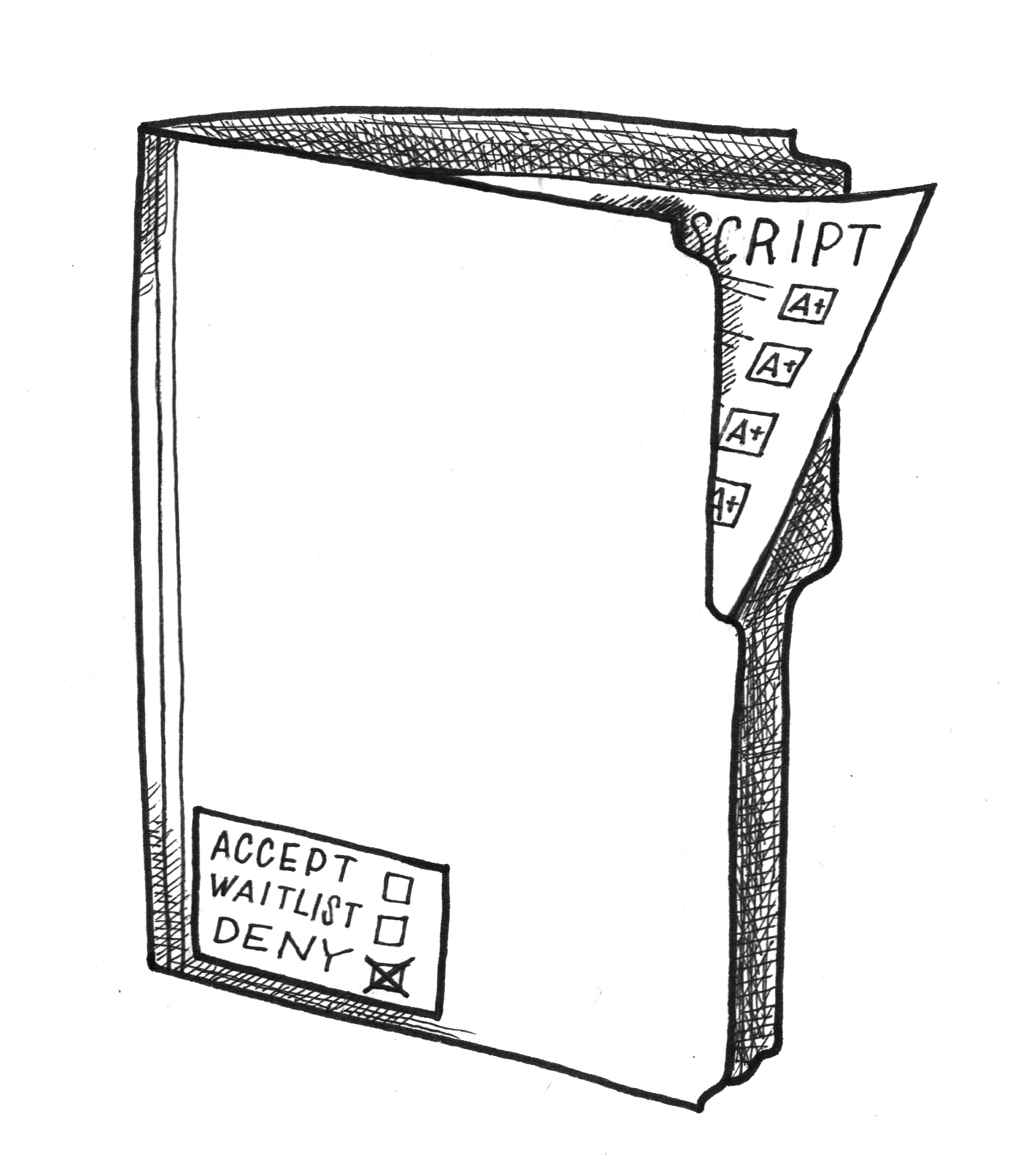Do I belong here? Questioning Bowdoin’s meritocracy
April 5, 2019
 This
piece represents the opinion of the author
.
This
piece represents the opinion of the author
.
 Lily Anna Fullam
Lily Anna Fullam“You all belong here.” It was a statement repeated over and over again as the class of 2022 filled the seats of Morrell Gymnasium on August 25, 2018. As various faculty speakers made their way to the podium to offer welcoming remarks to the incoming class, I remember a feeling of exhaustion as students finally allowed ourselves to sit back into our chairs to relax. Once again, we were being reminded that our fight through the arduous college process had come to an end—our efforts had paid off, earning us the privilege of roaming across the quad and under the branches of Bowdoin’s famous whispering pines as a fresh-furred Polar Bear.
Within those remarks, a prophetic narrative could be pieced together, little by little: one of the heavy workloads, late nights and difficult conversations that students would inevitably take on in their pursuit of an intellectually rigorous education. “But make no mistake,” one speaker said, leaning forward, “through all those moments, remember that you belong here.” These words have resonated with me more than I thought they would at the time and have taken me on a much different path than, I think, originally intended.
When news broke of the recent college admissions scandal, I found myself listening to all the media noise. College officials, high school administrators and politicians came on air, one after another, to condemn the actions of those pleading guilty to the federal charges announced in Boston; each interviewee feverishly called for a return to a more meritocratic system wherein students are given the admission acceptances they rightfully deserve.
This concept of meritocracy—a society or institution that selects or rewards people on the basis of their demonstrated ability alone—appears to be built into the very blood that pumps through Bowdoin, and I cannot help but think it a strange sight to see. Students are praised for the work that got them here, making them stand out among peers, setting perfection as the standard. Every student here is exceptional, but do they really belong here?
The idea of a “privileged education” and a “person earning their spot” among the student body at a top-ranked college seems to be a contradiction to me. How can a person have an advantage, often an unfair advantage, if they fairly earned their position? Perhaps I stand alone here in questioning my place, but I cannot seem to point to any reason why I am here at this school based on merit alone. I acknowledge that schools providing privileged opportunities have strict standards for admittance, by definition, but I wonder if this is a system that should be left behind.
With the release of Bowdoin’s 2023 acceptance letters, I remember the dozens of incredibly talented and unique prospective students who have come and gone from the floor of my dorm, and I wonder what could possibly differentiate each applicant. They were students whose academic achievements were all so near perfection that you would expect them to earn a spot at any school on academic merit alone. From here, we might look to the humanistic features that align with the mission of the College to differentiate students. Talking with them about their dreams of furthering the Common Good and participating in genuine enthusiasms of intellect and rigor, there seems to be no conceivable reason for acceptance or denial in this case beyond luck or circumstance. They seemed like they belong here. How can a system truly make a merit-based decision with such nuanced differences between people? What’s worse is this arbitrary nature of selective admittance assumes that everyone has an even playing field; it is shocking to even look briefly at how systems of prejudice skew this process beyond any reconcilable point.
I believe the idea of meritocracy is eerily reminiscent of a distant form of Social Darwinism and an example can be seen clearly in the 8.9 percent acceptance rate. Who are we leaving behind based on a judgment call? I encourage people to consider this notion, particularly as they look to life beyond Bowdoin: awarding based on merit seems like an obvious way to value people, but toxic implications aren’t far away, no matter the direction we turn.
Patrick Bloniasz is a member of the Class of 2022.

Comments
Before submitting a comment, please review our comment policy. Some key points from the policy: